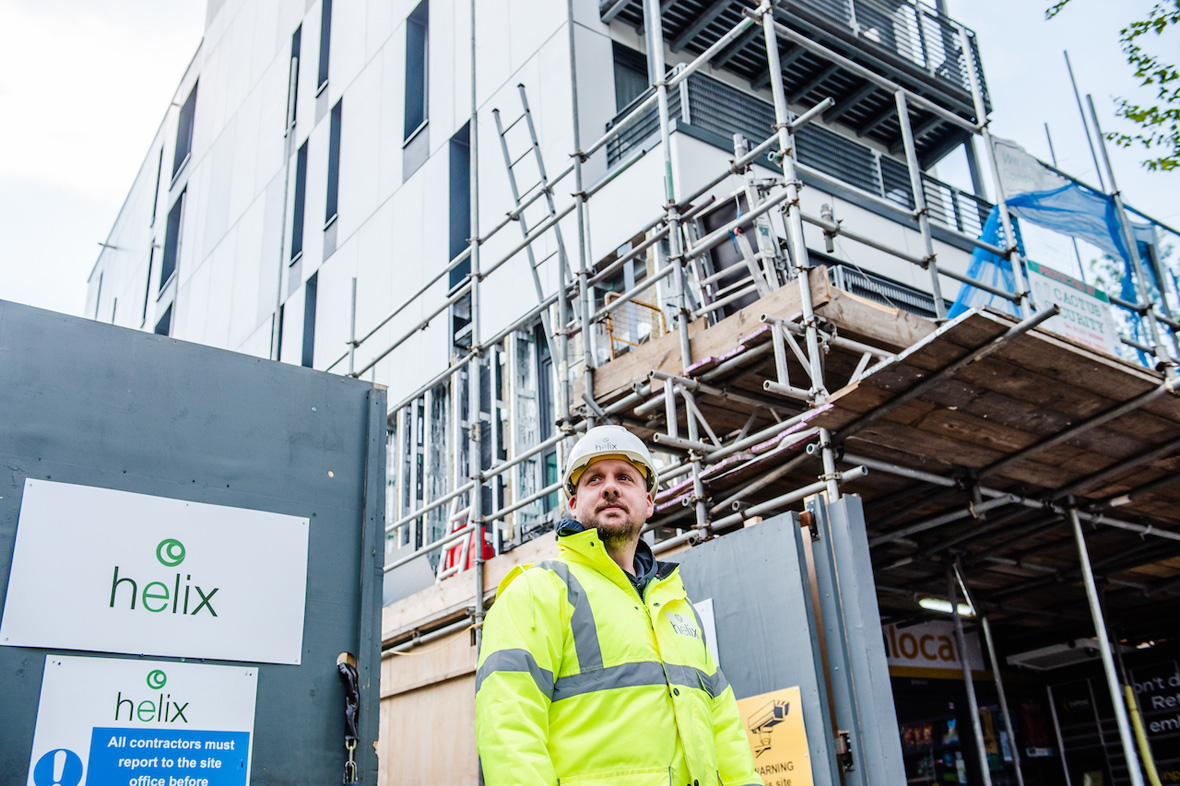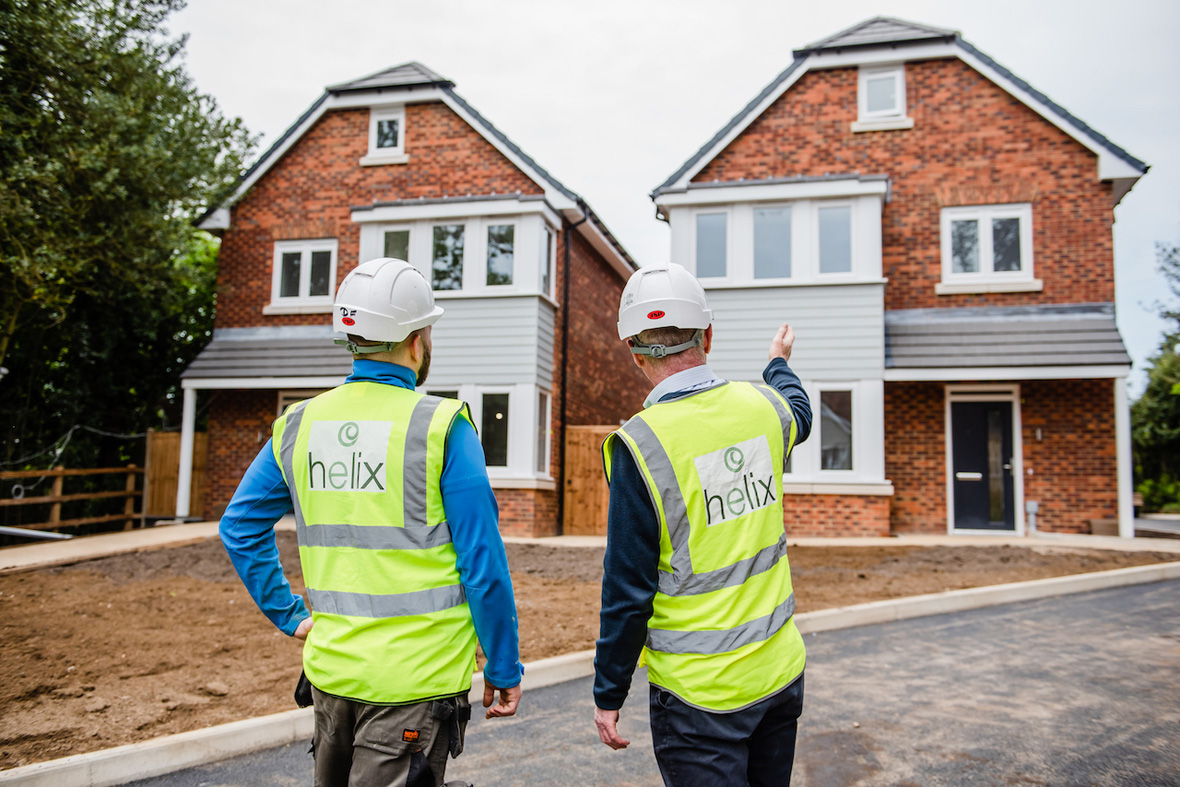
Co-founder and Director of Helix Partnership Homes, Charlie Scherer, and Nic Davies, Group Chief Executive Officer at Helix, look at the qualities of SME housebuilders in boosting housing provision, and what more could be done to close the gap between demand for affordable homes and timely and quality provision of new homes.
Thirty-five years ago, SME housebuilders were responsible for around 40% of housing delivery annually, but by 2020, that number was down to just 10%.
We need a variety of housebuilders in the UK including the national and modular housebuilders, as well as SMEs. We all have a key role to play in new home capacity, but while larger national housebuilders may have more resources to develop huge sites, SMEs have a lot to offer in other areas.
A different delivery model
Rather than building 500 homes on one site, SMEs will typically spread their housebuilding across five or six sites with anything from 20 to 100 homes and will usually have their own niche in terms of the product that they build. With lots of SMEs building smaller sites, there is less competition between them; as SMEs are offering several types of homes that are not competing with each other and are providing varied options to meet local customers’ needs.
At Helix, we’re doing a lot of work in partnership with housing associations, building 100% affordable housing. Although these developments are on smaller sites, they often have practical complexities and we would argue that unlike SMEs, larger companies would not have the ‘staying power’ for this type of relatively modest scale delivery.
 Quicker delivery of homes
Quicker delivery of homes
SMEs do not have the same scale of capital as larger builders, who will take a long-term view on larger strategic sites. SMEs are often interested in smaller sites that have a pre-existing principle of development or a deliverable planning status in place. This means we can invest quickly and then deliver new much-needed homes at a faster pace, meeting current demand in local areas in the shorter term.
It’s not an unreasonable assumption to say that the smaller the site, the smaller the cash resources required, the quicker the delivery of homes, and the sooner we can invest the proceeds in the next site. When looking at new sites like these, SMEs can be very flexible as we have nimble governance frameworks. That means that decisions can be made without lots of red tape, and we can provide responses to stakeholders more quickly.
Sustainability
I see a lot of smaller sized housebuilders embracing sustainable and carbon-reducing technologies and innovations. We, like others, have made the move away from fossil fuels on development sites, embracing the technology of new Future Homes Standards.
For SMEs, the use of sustainable and renewable energy is arguably an easier decision to make. Smaller schemes can be considered for new innovations that have emerged, rather than larger sites being constrained by their planning history and feasibility. This not only results in more energy-efficient, insulated, and warm homes being produced more quickly, but importantly in reduced bills for residents too.
 A crucial contribution
A crucial contribution
So, with all this to offer, SMEs can provide a crucial contribution to the UK housing market. If we could increase SME delivery of new homes by just 20%, we could fulfil the national housing target, while providing high-quality, sustainable homes and communities.
But we need to give SMEs and particularly new start-ups the resources, support, and encouragement to help close that gap in provision.
Interventions that Homes England have been making over the last two or three years have been very welcome, and that support looks set to continue with the 2023 to 2028 strategic plan stating an ambition to encourage SMEs to help deliver high-quality housing and regeneration outcomes.
With over 9,000 hectares of land and £16bn combined capital spend to deploy by March 2028, the resources and support planned could make a real difference in closing the gap in housing provision, particularly through financing schemes such as the Levelling Up Home Building Fund. SMEs face many challenges, especially as new start-ups, so that support is crucial.
We would also advocate a more creative procurement process for public contracts and land disposals, that doesn’t discount newer SMEs because of demanding requirements to entry that only well-established companies can comply with. If new SMEs and their investors are to be encouraged to contribute to increase housebuilding, then procurement must catch up.
The contribution of SME housebuilders in the country’s delivery of homes has clearly dropped significantly, but with access to the right support and finance, they could make the biggest difference to closing the gap between the number of homes needed and those currently provided.
At Helix, we don’t just build homes, we provide an advisory role to clients, often partnering with the public sector and affordable housing providers. If you would like to discuss a proposed scheme, or SME housebuilding in general, drop me a line at Charlie@helix.limited










